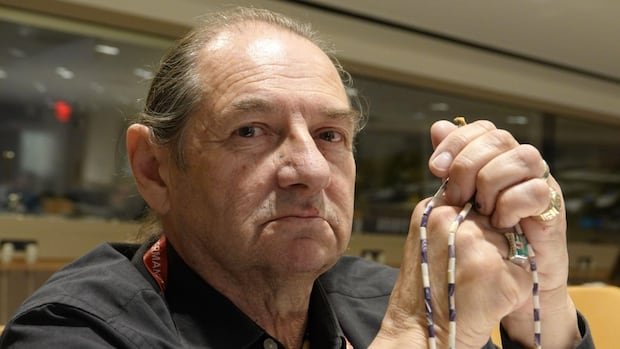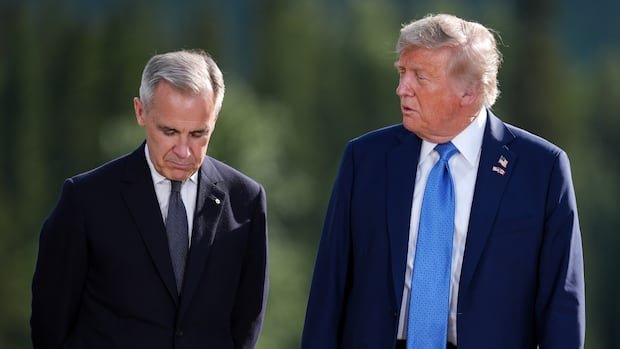The head of the Odanak Abenaki is celebrating a victory in the campaign of his nation against the tribes recognized by the State in New England, many of which says they are illegitimate.
In a press release, Rick O’Bomsawin says that a bill of New Hampshire, that legislators killed last month, would have given too much power to what he calls abenaki groups “self -proclaimed” in Vermont.
“I think someone is starting to listen,” he said.
The Odanak and W8Linak abenaki say that four abenaki tribes recognized in Vermont are among those that are not really abenaki, but state law allows them to sell works of art, access funds for social programs and receive free hunting and fishing licenses.
The leaders in Quebec took identity fraud concerns to the United Nations last year.
But more recently Bill 161entitled “Change the membership of the Affairs Commission of the Native Americans of New Hampshire”, would have extended the influence of the groups in New Hampshire, says O’Bomsawin.
“I think New Hampshire was seeing what is happening and saying: ‘Oh, before entering this disaster, we stop this at the beginning,” he said.
Odanak and W8Linak, located near Trois-Rivières, who, historically have faced groups in the United States with respect to legitimacy. O’Bomsawin and some researchers argue that many of the Abenaki groups recognized by Vermont are not indigenous at all.
Try to establish a process recognized by the State
Darryl Leroux says that these New England groups have refused to verify “that they are able to do it.”
Associated Professor at the School of Political Studies of the University of Ottawa that has studied transformations into white identities and colonialism of settlers, Leroux discovered that the majority of the members of the tribes did not have Abenaki ancestry, but are descendants of French Canadian immigrants.
He published his findings in an article reviewed by pairs “state recognition and the dangers of breed change” in the American magazine of culture and research of India in 2023. Genealogy has not been verified independently by CBC News.
“They have chosen to believe the family tradition,” Leroux said. “The responsibility of one when he makes this type of claims is [at] The least to verify the statements. “
He says that states can establish their own process to recognize tribes, often for “political reasons.” Currently, New Hampshire does not have a state recognition process.
“This bill was trying to put [one] Instead, “Leroux said.
To obtain the US federal status, the groups, also known as tribes, must demonstrate the fulfillment of seven mandatory criteria, including a continuous history as an American Indian entity since 1900. In 2005, one of the four groups recognized by Vermont, the Missisquoi Abenaki nation, did not meet some criteria.
Donald Stevens, head of the Nulhegan Band of the Nation Coosuk Abenaki in Vermont, says that his tribe has not felt the need to seek federal recognition.
“It’s not because we can’t or don’t want to,” said Stevens, whose tribe is recognized in Vermont. “It costs a lot of money and a lot of time.”
Stevens supported bill 161 in New Hampshire because he saw it as a means to help “consolidate” better interest interest and help establish ways to establish recognition processes in New Hampshire, if you wish.
He says that each tribe has the right to determine their own citizenship and dispute the findings of Leroux. He says that his family is “well documented as India and being gypsies who traveled from one place to another.”
“It’s sad when people are trying to publish false narratives,” he said.
But many of these groups recognized by the State would never qualify for federal recognition, says Kim Tallbear, professor at the Faculty of Native Studies of the University of Alberta.
“It is a very rigorous process,” said Tallbear, who is also president of Canada’s research in indigenous peoples, technoscience and society.
‘A really serious way of theft’
Tallbear, citizen of Sisseton-Wahpeton Oyate today of Dakota del Sur, says that the standards of state recognition are “quite frightening.” She is among those who say something needs to change.
“We are really advocating that the states leave the business of doing this,” she says.
“It leaves this to nation conversations to Nation, which are between tribal governments and the federal government.”

While Tallbear says that “pretending” can sometimes be put on the back, it has been recognized that it is a growing problem, since some groups misrepresent and eclipsan history.
“These groups now compete with tribal groups recognized for resources and recognition,” he said.
“I am seeing that the tide revolved … we are progressing in terms of making people understand that this is a really serious form of robbery.”
Chief in Odanak denounces exclusion
Due to colonization and war, Abenaki was forced north of his homelands and settled in what is now Odanak and W8Linak.
At this time, O’Bomsawin says that self -identified groups in the United States exceed their community and live in the ancestral territory that extends from the south of Quebec to the north of Massachusetts, which covers Vermont and New Hampshire.
Despite its ties with the region, the O’Bomsawin community has no voice about the regulations or requirements of the groups that bear their name and live in areas that consider the traditional territory.
“They didn’t even contact us at all,” O’Bomsawin said.
“If you are truly abenaki, wouldn’t you want to fight to make sure that no one is stealing your culture and your language? Wouldn’t you want to know who your family members are? That’s all I am trying to do,” he said.
What hurts particularly is not having recognition in the United States, despite being recognized by the federal government in Canada, he says.
“Not only do you want to steal my identity … but you also want to steal my pain,” O’Bomsawin said. “And that’s really sad.”









